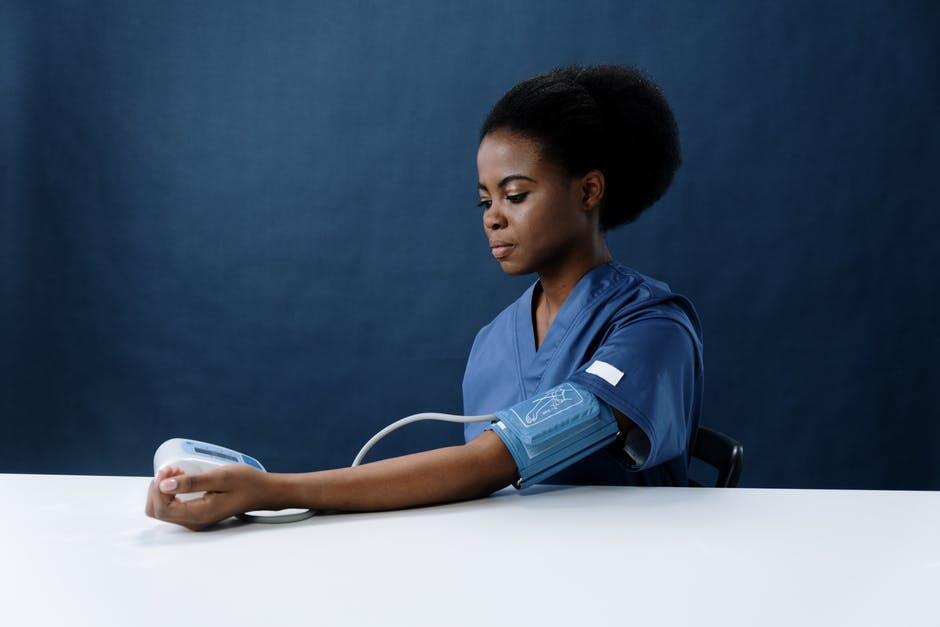
What is Considered a Healthy Blood Pressure? Essential Insights

If you’ve been asking, “What is considered healthy blood pressure?” the answer is less than 120/80 mm Hg (millimeters of mercury), according to the National Heart, Lung, and Blood Institute.
Any higher than that, and you’re either at risk of hypertension or already have hypertension (high blood pressure).
Knowing your typical blood pressure, understanding hypertension, and learning what your numbers mean is crucial because this disease can develop without noticeable symptoms. It’s also for this reason that many refer to it as the “silent killer.”
Given that hypertension is deadly, you must familiarize yourself with blood pressure guidelines. It’s the first step to maintaining healthy BP levels and heart health.
What Is a Perfect Blood Pressure by Age?
For most adults, the “perfect” blood pressure (i.e., a healthy or normal blood pressure range) is the same: under 120/80 mm Hg.
As noted by Verywell Health, however, age and gender cause variations in average adult blood pressure ranges:
- Males 18 to 39: 119/70 mm Hg
- Females 18 to 39: 110/68 mm Hg
- Males 40 to 59: 124/77 mm Hg
- Females 40 to 59: 122/74 mm Hg
- Males 60 and older: 133/69 mm Hg
- Females 60 and older: 139/68 mm Hg
What Do Blood Pressure Numbers Mean?
The first or top number in a blood pressure reading is the systolic pressure. It represents your heart’s pressure as it beats and pumps blood.
The second or bottom number is the diastolic pressure. It represents the pressure during the times the heart is at rest between pumps.
What Are Blood Pressure Categories?
There are five blood pressure categories. They serve as a guideline, helping individuals and healthcare providers monitor and manage cardiovascular health.
According to the American Heart Association, the five categories of blood pressure include:
- Normal: A systolic pressure of under 120 and a diastolic pressure of under 80
- Elevated: A systolic pressure of between 120 and 129 and a diastolic pressure of under 80
- Stage 1 Hypertension: A systolic pressure of 130 to 139 or a diastolic pressure of 80 to 89
- Stage 2 Hypertension: 140 or higher systolic pressure or 90 or higher diastolic pressure
- Hypertensive Crisis: A systolic pressure of over 180 or a diastolic pressure higher than 120
The above blood pressure categories allow for a more streamlined identification of whether a person’s blood pressure level is “healthy” or if it’s high and they need intervention. Someone with a hypertensive crisis should, for instance, call 911 ASAP.
What Are the Major Causes of High Blood Pressure?
Scientists and medical health professionals have yet to discover the exact causes of hypertension. However, several factors may contribute to its development:
- Advancing age
- Being overweight or having obesity
- Smoking
- Lack of physical activity
- Prolonged exposure to a high-sodium (salt) diet
- Excessive alcohol consumption
- A family history of hypertension
- Having chronic kidney disease
What Are the Silent Signs of High Blood Pressure?
Hypertension got its nickname, the “silent killer,” because in many cases, it doesn’t cause significant symptoms during its early stages. However, some people can still experience subtle signs that indicate elevated blood pressure levels.
One of these is a persistent headache or a strange sensation in the head. In some people with hypertension, these symptoms typically occur in the morning or soon after physical activity.
Fatigue without an apparent reason is another potential symptom of high blood pressure. It’s a feeling of tiredness or weariness, like you don’t have any energy at all,
If you feel breathless or experience shortness of breath even if you’re at rest or only doing something mild (e.g., washing your hands in the sink), it may be a sign of hypertension.
Another way that high blood pressure can manifest is through blurry vision. While it’s often temporary, it can still affect your daily life and safety.
If, along with the symptoms above, you also experience dizziness or lightheadedness, palpitations, and chest pain or tightness, you may have hypertension. Check your blood pressure level now with a blood pressure monitor (if you have one).
If not, please see your primary care provider as soon as possible.
Frequently Asked Questions
Is High Blood Pressure Reversible?
High blood pressure may not be completely reversible, but there are ways to lower and manage it.
Lifestyle modifications, which include losing weight, maintaining a healthy weight, and engaging in more physical activity, can all help. Limiting alcohol consumption and quitting smoking can also benefit people with hypertension.
Don’t forget to monitor your blood pressure regularly with a home blood pressure monitor. It can help you keep track of whether your healthy efforts are paying off. At the same time, you can avoid allowing your BP to skyrocket.
What Medications Can Help With Hypertension?
Many medications exist for high blood pressure, although the first line of treatment is usually a healthy lifestyle plan. If medications are necessary, your doctor will likely prescribe thiazide-type diuretics or calcium channel blockers.
If you have other conditions, such as diabetes, your healthcare provider may prescribe angiotensin-converting enzyme (ACE) inhibitors. Conversely, they may have you take angiotensin II receptor blockers (ARBs) if you can’t tolerate ACE inhibitors.
Is It Possible to Prevent High Blood Pressure?
Fortunately, the answer is yes.
According to the U.S. CDC, high blood pressure is preventable with healthy living habits. It involves pretty much the same things people with hypertension should do to manage their condition.
Eating healthily, maintaining a healthy weight, and getting enough exercise are some examples. Don’t forget to get enough high-quality sleep (about seven to nine hours).
Control stress levels, too, as it can contribute to hypertension and other health conditions.
What Is Considered Healthy Blood Pressure? Now You Know
As discussed in this guide, the answer to the question, “What is considered healthy blood pressure?” is under 120/80 mm Hg for adults. Although the elevated category doesn’t mean you already have hypertension, you should still aim to bring it down to normal.
If your doctor has diagnosed you with hypertension and you now need prescription medications, our online pharmacy, Kiwi, is here to help.
We carry thousands of products from hundreds of brands, and we use military-grade encryption to keep your purchases and info safe. Rest assured, your medications will only come from licensed, inspected, and regulated pharmacy locations.
Contact us today so we can help you get started on purchasing safe and secure medications.
WORKS AND REFERENCES CITED:
- https://www.nhlbi.nih.gov/health/high-blood-pressure
- https://www.verywellhealth.com/average-blood-pressure-by-age-5085328
- https://www.heart.org/en/health-topics/high-blood-pressure/understanding-blood-pressure-readings
- https://www.kiwidrug.com/blog/2024/03/strange-sensations-10-possible-reasons-why-your-head-feels-weird/
- https://www.kiwidrug.com/blog/2022/09/what-causes-blurry-vision-your-essential-eye-health-guide/
- https://www.cdc.gov/high-blood-pressure/prevention/index.html
- https://www.kiwidrug.com/contact/
Related Posts

First Signs of Herpes: Your Guide to Early Symptoms
January 20, 2026